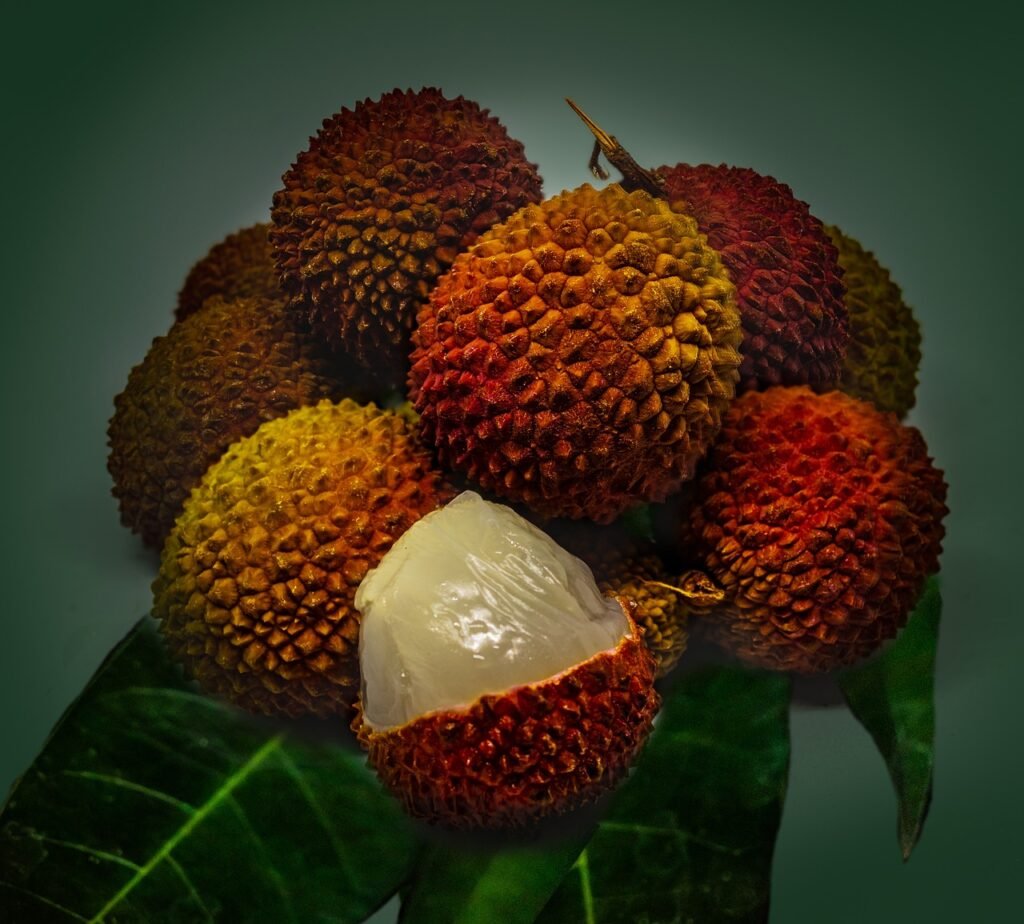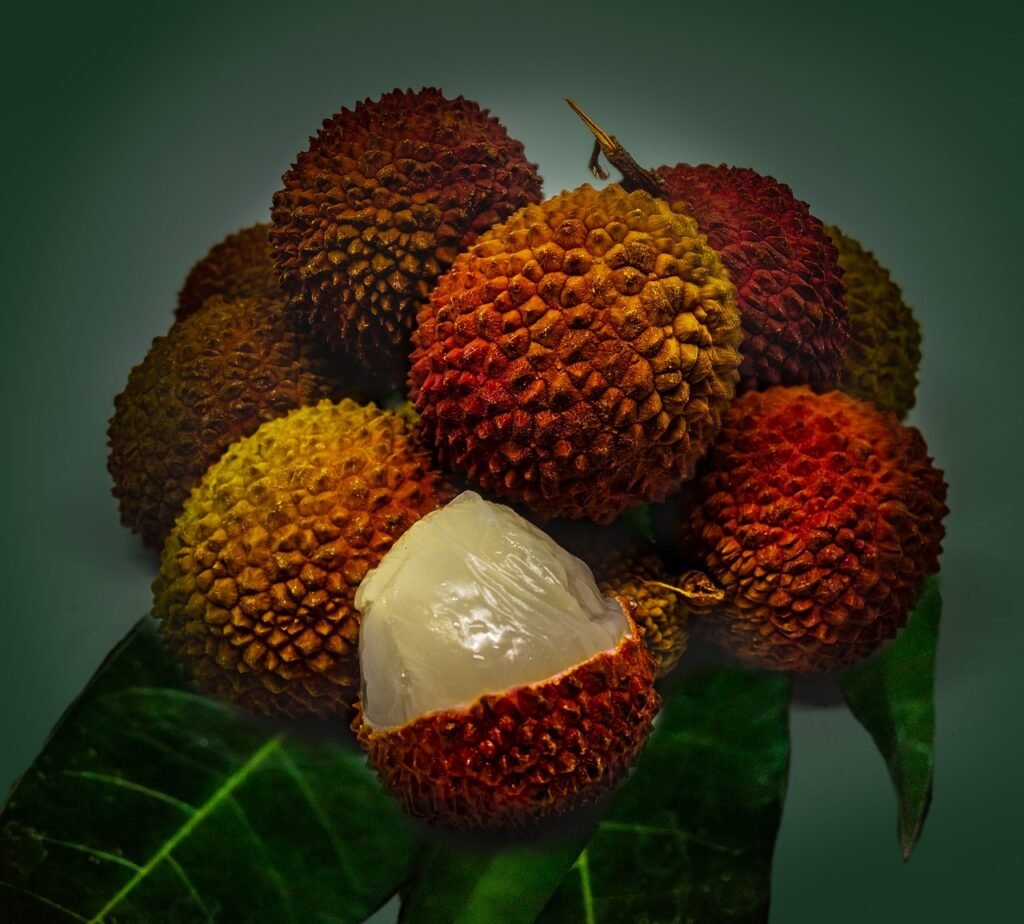In this article, you will discover the fascinating science behind phytochemicals and their crucial role in cancer prevention. These naturally occurring compounds found in fruits, vegetables, and other plant-based foods have been extensively studied for their potential to ward off cancer. By exploring the mechanisms behind phytochemicals’ cancer-fighting abilities, you will gain a deeper understanding of how simple dietary choices can have a profound impact on your health and well-being. Get ready to embark on a journey through the world of phytochemicals and unlock the secrets to a healthier future.
Understanding Phytochemicals
Phytochemicals, also known as phytonutrients, are natural compounds found in plants that have been shown to promote health and prevent various diseases, including cancer. These compounds are responsible for the vibrant colors, aromas, and flavors in fruits, vegetables, herbs, and spices. While they are not considered essential for life, research has demonstrated their numerous health benefits, especially in cancer prevention.
Definition of Phytochemicals
Phytochemicals encompass a wide range of compounds, including polyphenols, carotenoids, flavonoids, and organosulfur compounds, to name just a few. Each group of phytochemicals has its own unique properties and potential health benefits. These compounds work synergistically in the body, targeting multiple pathways and providing a holistic approach to cancer prevention.

Sources of Phytochemicals
Phytochemicals are abundantly present in a variety of plant-based foods. Fruits and vegetables, such as berries, citrus fruits, leafy greens, and cruciferous vegetables, are rich sources of phytochemicals. Herbs and spices, such as turmeric, garlic, and cinnamon, also contain high levels of these beneficial compounds. Additionally, teas and herbal infusions, such as green tea or chamomile tea, provide a convenient way to incorporate phytochemicals into your daily routine.
Types of Phytochemicals
There are numerous types of phytochemicals, each with its own unique properties and potential health benefits. Here are some commonly studied phytochemicals:
Curcumin
Curcumin is a polyphenol found in turmeric, a spice commonly used in Indian cuisine. It has garnered significant attention for its potential anti-cancer properties. Curcumin has been shown to inhibit the growth and spread of cancer cells, reduce inflammation, and modulate gene expression, making it a promising phytochemical in cancer prevention.
Resveratrol
Resveratrol is a polyphenol found in grapes, red wine, and berries. It has gained recognition for its antioxidant and anti-inflammatory effects, as well as its ability to inhibit the growth of cancer cells and induce their death. Resveratrol has been studied extensively for its potential role in cancer prevention and as an adjunctive therapy for various types of cancer.
Lycopene
Lycopene is a carotenoid that gives fruits and vegetables their red color, such as tomatoes and watermelon. It is a potent antioxidant with anti-cancer properties. Lycopene has been shown to inhibit cancer cell growth, particularly in prostate, lung, and breast cancers. Regular consumption of lycopene-rich foods has been associated with a reduced risk of developing certain types of cancer.

Role of Phytochemicals in Cancer Prevention
Phytochemicals exert their cancer-preventive effects through various mechanisms of action:
Mechanisms of Action
Phytochemicals can influence multiple cellular processes involved in cancer development and progression. They can regulate cell proliferation, inhibit angiogenesis (the formation of new blood vessels that supply tumors), and suppress metastasis (the spread of cancer to distant sites in the body). Moreover, phytochemicals can modulate signaling pathways involved in cell growth and survival, ultimately promoting a healthy cellular environment.
Antioxidant Properties
Many phytochemicals possess potent antioxidant properties, which help neutralize harmful free radicals in the body. Free radicals are highly reactive molecules that can cause oxidative damage to cells, leading to DNA mutations and the development of cancer. By scavenging these free radicals, phytochemicals help protect cells from oxidative stress and maintain their integrity.
Anti-inflammatory Effects
Chronic inflammation has been implicated in the development of various cancers. Phytochemicals have anti-inflammatory effects, reducing the production of pro-inflammatory molecules and promoting a balanced inflammatory response. By modulating inflammation, phytochemicals help create an unfavorable environment for cancer initiation and progression.
Specific Phytochemicals with Cancer Prevention Abilities
While numerous phytochemicals have demonstrated cancer prevention abilities, here are three specific compounds that have received considerable attention:
Curcumin
Curcumin, as mentioned earlier, has shown promising anti-cancer effects in numerous types of cancer. It has been found to inhibit cancer cell growth, induce apoptosis (programmed cell death), and reduce inflammation. Curcumin’s ability to modulate gene expression is particularly noteworthy, as it can influence various genes involved in cancer development and progression.
Resveratrol
Resveratrol, known for its presence in red wine, berries, and grapes, has exhibited anti-cancer properties in various studies. It has been shown to inhibit cancer cell growth, induce apoptosis, and reduce inflammation. Resveratrol’s antioxidant effects also contribute to its cancer-preventive potential.
Lycopene
Lycopene, commonly found in tomatoes and watermelon, has been associated with a reduced risk of developing certain cancers. It has been studied extensively for its ability to inhibit cancer cell growth, particularly in prostate, lung, and breast cancers. Lycopene’s antioxidant properties contribute to its protective effects against DNA damage and cancer initiation.

Phytochemicals and Genetic Protection
Phytochemicals can interact with genes and influence their expression. This modulation of gene expression can have a profound impact on cancer prevention. Here are two ways in which phytochemicals offer genetic protection:
Modulation of Gene Expression
Phytochemicals can affect the expression of various genes involved in cancer development and progression. They can target oncogenes, which promote cancer growth, and tumor suppressor genes, which inhibit the development and spread of cancer. By modulating the expression of these genes, phytochemicals can create an environment that inhibits cancer initiation and progression.
Inhibition of DNA Damage
DNA damage is a crucial event in cancer development. Phytochemicals can protect against DNA damage by preventing oxidative stress and reducing inflammation. They can also enhance the body’s DNA repair mechanisms, ensuring that damaged DNA is properly repaired and preventing the accumulation of mutations that can lead to cancer.
Induction of Apoptosis
Apoptosis, or programmed cell death, is a natural process that eliminates damaged or abnormal cells. Phytochemicals can induce apoptosis in cancer cells, ensuring their timely removal from the body. By promoting apoptosis, phytochemicals prevent the survival and proliferation of cancer cells, thus reducing the risk of tumor formation.
Synergistic Effects of Phytochemicals
Phytochemicals often exhibit synergistic effects when consumed together. These effects can enhance their individual cancer-preventive properties:
Complementary Mechanisms
Different phytochemicals often target multiple pathways involved in cancer development and progression. By consuming a variety of phytochemicals, you engage multiple mechanisms that together create a more robust defense against cancer. This complementary action ensures a comprehensive approach to cancer prevention.
Enhanced Bioavailability
Phytochemicals can have varying degrees of bioavailability, meaning the body’s ability to absorb and utilize them. When consumed together, phytochemicals can enhance each other’s bioavailability. For example, some phytochemicals can enhance the absorption of others or inhibit their breakdown. This synergistic interaction improves the overall availability of these compounds in the body.
Interaction with Conventional Cancer Treatments
Phytochemicals may also interact synergistically with conventional cancer treatments, such as chemotherapy or radiation therapy. They can enhance the efficacy of these treatments, reduce their side effects, and improve overall treatment outcomes. However, it is essential to consult with healthcare professionals before incorporating phytochemicals into cancer treatment regimens to ensure safe and effective integration.

Accessible Sources of Phytochemicals
Incorporating phytochemicals into your diet is easy, thanks to the wide variety of accessible sources:
Fruits and Vegetables
Fruits and vegetables are among the most abundant sources of phytochemicals. Opt for a colorful assortment of produce, as different colors indicate the presence of different phytochemicals. Berries, citrus fruits, leafy greens, cruciferous vegetables, and tomatoes are excellent choices.
Herbs and Spices
Herbs and spices not only add flavor to your dishes but also provide a concentrated dose of phytochemicals. Turmeric, garlic, ginger, cinnamon, and oregano are just a few examples of herbs and spices that contain high levels of beneficial compounds.
Teas and Herbal Infusions
Teas and herbal infusions offer a convenient way to incorporate phytochemicals into your daily routine. Green tea, black tea, chamomile tea, and hibiscus tea are all excellent choices. Experiment with different flavors and types of tea to enjoy a variety of phytochemicals.
Dietary Recommendations for Optimal Phytochemical Intake
To maximize the cancer-preventive benefits of phytochemicals, consider the following dietary recommendations:
Colorful Plate Approach
Embrace a colorful plate approach by including a variety of fruits and vegetables in your meals. Aim to consume a rainbow of colors, as each color signifies the presence of different phytochemicals. The more diverse your plate, the greater the range of health-promoting compounds you’ll ingest.
Balance and Variety
Strive for a balanced and varied diet that includes a wide range of plant-based foods. Experiment with different fruits, vegetables, herbs, and spices to reap the benefits of an array of phytochemicals. Incorporate seasonal produce and explore different cuisines to diversify your nutrient intake.
Raw vs. Cooked Foods
Both raw and cooked foods can provide phytochemicals, but some compounds may be more bioavailable in one form or the other. For example, cooking can enhance the availability of certain phytochemicals, while consuming raw foods ensures minimal degradation of heat-sensitive compounds. Include a combination of raw and cooked plant-based foods in your diet to obtain the greatest variety of phytochemicals.

Potential Risks and Limitations
While phytochemicals offer numerous health benefits, it is essential to be aware of potential risks and limitations:
Toxicity Concerns
While uncommon, some phytochemicals may exhibit toxicity at high doses. For example, certain alkaloids found in plants may be harmful in large amounts. It is crucial to consume phytochemicals within recommended dietary guidelines and avoid excessive supplementation without professional guidance.
Interactions with Medications
Phytochemicals can interact with medications, potentially altering their effectiveness or causing adverse effects. If you are taking any medications, especially those for cancer treatment or blood thinning, consult with your healthcare provider before incorporating high doses of phytochemicals into your regimen.
Individual Variations
Individual responses to phytochemicals may vary based on genetics, overall health status, and existing medical conditions. While many people can safely benefit from incorporating phytochemical-rich foods into their diets, it is always advisable to consult with healthcare professionals, especially if you have any specific health concerns.
The Role of Phytochemicals in Cancer Treatment
Phytochemicals not only have a role in cancer prevention but also in cancer treatment:
Adjunctive Therapy
Phytochemicals can serve as adjunctive therapies alongside conventional cancer treatments. They can enhance the efficacy of treatments, reduce treatment-related side effects, and support overall well-being. Integrating phytochemicals into cancer treatment plans should be done in consultation with healthcare professionals.
Chemopreventive Measures
Phytochemicals can be used as chemopreventive measures to reduce the risk of cancer recurrence or the development of new cancerous lesions. These compounds can target specific mechanisms involved in cancer growth and provide additional support to conventional treatments, contributing to long-term cancer management.
Managing Treatment Side Effects
Phytochemicals can help manage treatment side effects, such as nausea, fatigue, and inflammation, commonly experienced by individuals undergoing cancer treatments. Examples include ginger for nausea relief and turmeric for anti-inflammatory effects. However, it is crucial to discuss the use of phytochemicals with healthcare professionals to ensure they complement treatment plans without interfering with medications.
Current Research and Future Directions
The field of phytochemical research is continually evolving, with ongoing studies exploring the potential of these compounds in cancer prevention and treatment. Here are a few areas of current research and future directions:
Clinical Trials and Observational Studies
Clinical trials and observational studies are vital for understanding the efficacy and safety of phytochemicals in cancer prevention and treatment. Researchers are investigating the optimal dosage, timing, and potential interactions of phytochemicals with conventional treatments. These studies aim to provide evidence-based recommendations for integrating phytochemicals into cancer management strategies.
Combination Therapies
Research is examining the synergistic effects of combining phytochemicals with conventional cancer treatments. Studies investigate how phytochemicals can enhance the efficacy of treatments, reduce side effects, and overcome treatment resistance. Combination therapies hold promise for more targeted and personalized cancer management approaches.
Targeted Phytochemical Delivery Systems
Scientists are exploring innovative delivery systems for phytochemicals to enhance their bioavailability and target specific areas of the body. These systems may include nanotechnology or encapsulation methods that protect and deliver phytochemicals directly to cancer cells, maximizing their therapeutic potential while minimizing off-target effects.
In conclusion, phytochemicals play a crucial role in cancer prevention, thanks to their numerous health-promoting properties. These natural compounds offer a holistic approach to mitigating cancer risks by targeting multiple pathways involved in cancer development and progression. By incorporating a diverse range of phytochemical-rich foods into your diet and working closely with healthcare professionals, you can harness the potential of these compounds to support your overall health and well-being. Stay informed about the latest research and future directions in phytochemical studies, as ongoing advancements pave the way for more effective cancer prevention and treatment strategies.

